
Experts in gynecologic oncology provide insight on educating patients with ovarian cancer on the duration of maintenance therapy.

Experts in gynecologic oncology provide insight on educating patients with ovarian cancer on the duration of maintenance therapy.
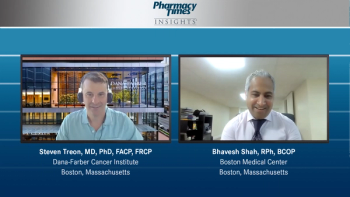
Recommendations for classifying and treating patients with progressive Waldenstrom macroglobulinemia.

The top considerations of hematologists and oncologists when selecting first-line treatment for patients with Waldenstrom macroglobulinemia.

Drs Jennifer MacDonald, Bradley J. Monk, and Sarah Hayward review current FDA-approved PARP inhibitors for first-line maintenance therapy for patients with ovarian cancer.

Alyson McGregor, MD, of Brown University explains what pharmacists can do to advance issues arising around the impact of sex and gender on medicine.
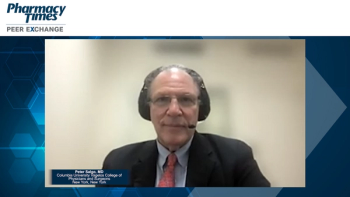
A panel of doctors explains whether or not someone can get a different COVID-19 booster from their original vaccinations and how they compare.

Experts discuss who is eligible for COVID-19 booster shots and the misinformation around COVID-19 vaccinations.

Abby Sauer, a registered dietitian specializing in adult nutrition at Abbott, discusses how the unique nutritional needs of women evolve with age and some tips pharmacists can provide to women 30 years of age and older in the pharmacy.

Rebecca Sleeper, PharmD, FCCP, FASCP, BCPS, of the Texas Tech University Health Sciences Center Jerry H. Hodge School of Pharmacy, discusses how a lack of sex and gender specific patient care education can impact a pharmacist’s work with their patients.

Alyson McGregor, MD, of Brown University discusses the focus of her research into sex and gender in emergency medicine.

Angela Rasmussen, PhD, and Donald Alcendor, PhD have a conversation on the recent expansion of COVID-19 booster shot usage in eligible populations.

Key opinion leaders debate on the necessity of COVID-19 booster shots.

Practical considerations for the future use of novel FMT therapy for patients with recurrent Clostridioides difficile infection.
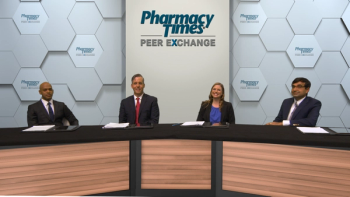
The panel reviews phase 3 data behind SER-109, another novel FMT therapy for patients with recurrent Clostridioides difficile infection.

Laura Lee Hall, PhD, president of the Center for Sustainable Health Care Quality and Equity (SHC), addresses her hopes for the future of SHC’s diabetes DRIVE program and its adoption within health systems.

Sarah Temkin, MD, associate director for clinical research in the Office of Research on Women’s Health at the National Institutes of Health, provides some closing thoughts on sex and gender in health care.
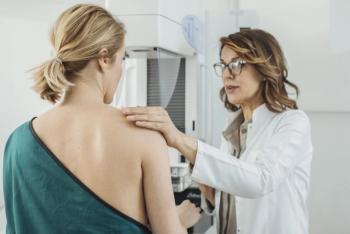
Burnout in pharmacy can be managed with the proper planning and the right techniques for your preference.

Ismail Lourido Ali, JD, director and counsel of policy and advocacy at the Multidisciplinary Association for Psychedelic Studies (MAPS), discusses the problems with approaching public health issues, such as mental health and substance use disorders, with an industrialized approach to problem solving.

Sarah Temkin, MD, of the Office of Research on Women’s Health at the National Institutes of Health, discusses some key points for pharmacists on the impact of biological and sociological variables on treatment outcomes.

Tom Hanzel, PharmD, MBA, discussed how vaccine mandates impact staffing shortages in long-term care facilities.

Ismail Lourido Ali, JD, director and counsel of policy and advocacy at the Multidisciplinary Association for Psychedelic Studies (MAPS), discusses whether the adoption and acknowledgement of psychedelic medicine in health care systems looks likely for the future.

Tom Hanzel, PharmD, MBA, of Parata Systems, discussed challenges in pharmacy workflow and how automation could offer solutions.
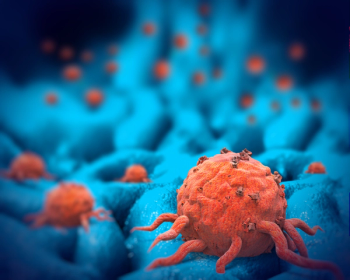
Luciano Costa, MD, PhD, of the University of Alabama at Birmingham, discusses the next steps for clinical research assessing daratumumab, carfilzomib, lenalidomide, and dexamethasone in patients with newly diagnosed multiple myeloma.

Sarah Temkin, MD, associate director for clinical research in the Office of Research on Women’s Health (ORWH) at the National Institutes of Health (NIH), discusses some of NIH ORWH’s upcoming goals and projects on the horizon that may impact the pharmacy field.

Ismail Lourido Ali, JD, director and counsel of policy and advocacy at the Multidisciplinary Association for Psychedelic Studies (MAPS), discusses which environments each psychedelic medicine is likely to be administered.

Shared insight on the phase 3 data behind RBX2660, a novel FMT therapy for patients with recurrent Clostridioides difficile infection.
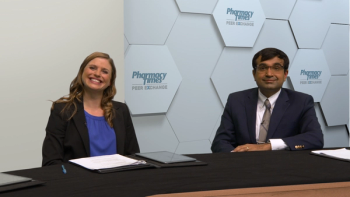
Experts reflect on the barriers to utilizing fecal microbiota transplantation therapy in Clostridioides difficile infection.

Sarah Temkin, MD, associate director for clinical research in the Office of Research on Women’s Health at the National Institutes of Health, discusses how clinical trials have evolved to address biological and sociological variables in patient health.

Luciano Costa, MD, PhD, of the University of Alabama at Birmingham, discusses how the results of the trial assessing daratumumab, carfilzomib, lenalidomide, and dexamethasone in patients with newly diagnosed multiple myeloma may impact the treatment landscape.

Ismail Lourido Ali, JD, director and counsel of policy and advocacy at the Multidisciplinary Association for Psychedelic Studies (MAPS), discusses which psychedelic drugs are currently under investigation for potential FDA approval.